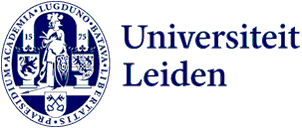
Antibiotics of the future: looking for a new way to kill bacteria
Current antibiotics only address very few target proteins in bacteria to kill them. Researchers know that there are more possible target proteins to tackle the bacteria. The question is: which ones. Thanks to the NWO Vidi Grant, Assistant Professor Molecular Physiology Stephan Hacker and his team can efficiently identify these new target proteins. This fundamental research will deliver many starting points for the development of antibiotics that work in a completely new way.

During his PhD, Hacker became very interested in antibiotics. ‘This field really stood out to me, because there is an urgent need to tackle bacteria in a different way,’ Hacker says. That is, because resistance towards antibiotics is a big problem. According to a recent study, over one million people have died in 2019 directly caused by the fact that bacteria are resistant to current antibiotics.’
One of the key challenges in developing new antibiotics, is that the ones we have so far, only address very few target proteins within the bacterial cell. ‘There should be more target proteins in the bacteria that we can address. We only need to find out which ones.’
Not only finding targets
Hacker studies new target proteins in the bacteria that future antibiotics could possibly bind to. ‘The question we work on is: how we can identify these additional binding sites that are essential for the bacteria? And can we hit them with small molecules that destroy the bacteria?’
That also includes the question: if the places where it is possible to bind the (antibiotic) compounds to, are also essential enough to really kill the bacteria. It is not because there is a way to attach something to the bacteria, that this is also the right place to kill it. ‘The goal is to set up technologies that lead us to these binding points that are actually functionally important to kill bacteria.’
First steps to new antibiotics
The researchers will develop innovative compounds that strongly engage proteins through chemical bond formation. Using these compounds, they will comprehensively understand, which binding sites in bacteria can be targeted with antibiotics. ‘This is the first step towards finding new antibiotics that work in a different way than the current ones.’
Making a big impact
At the moment, the pharmaceutical industry is not doing much research into new antibiotics, Hacker says. ‘But as soon as it becomes interesting to start developing new kinds of antibiotics on an industrial scale, we have the basic knowledge ready for it. So, I think there is a big importance to research into these new kind of target proteins. It can make a big impact in the medical field.’
With the money of the grant, Hacker can hire more PhD students and explore new directions they weren’t able to look at yet. ‘This will be a very big step forward from a scientific perspective. I’m very excited that we can explore all these new directions. Now we will be working on the basic and fundamental understandings of the bacterial systems, but I’m convinced that we can generate knowledge for actual applications in the medical world one day.’
